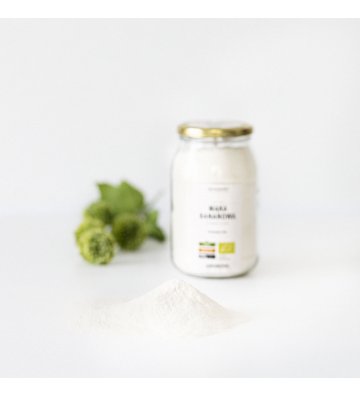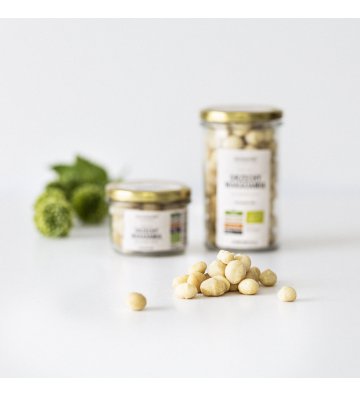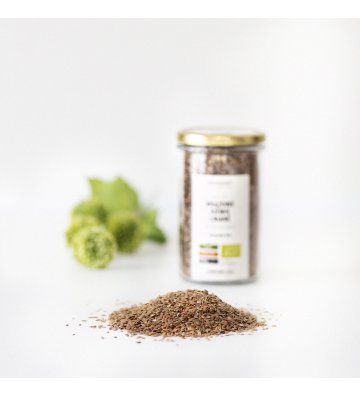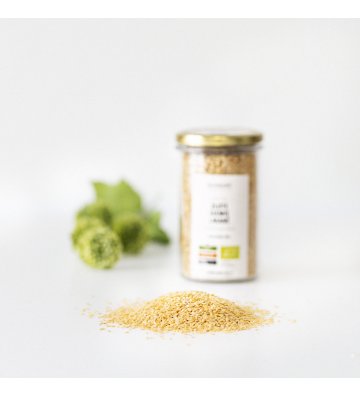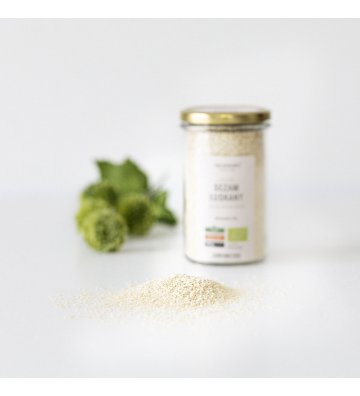What is the RAW diet?
The RAW diet, also known as the raw food diet, is based on consuming unprocessed food that hasn’t been heated above 40°C. The primary goal of this diet is to preserve the natural nutrients in food.
People following a RAW diet mainly eat:
✅ Raw vegetables
✅ Fresh fruits
✅ Nuts
✅ Seeds
✅ Sprouts
✅ Seaweed
✅ Cold-pressed oils
✅ Other plant-based products
Below you'll find a selection of our RAW-friendly products. Scroll down for more detailed information about this diet.
What is the RAW food diet?
As mentioned earlier, the RAW diet is centered on eating unprocessed and uncooked foods. Its foundation includes fresh fruits, vegetables, nuts, seeds, and raw grains.
RAW diet advocates believe that heat destroys vital nutrients and enzymes that are essential for good health.
How to follow a RAW diet?
To successfully follow the RAW diet, there are some important rules to keep in mind:
✅ Consume foods in their natural, uncooked, and unprocessed state.
✅ Choose organic produce whenever possible to avoid pesticides and chemicals.
✅ Include a variety of dishes such as fresh juices, smoothies, salads, raw soups, and desserts made with nuts and fruits.
✅ Stay well-hydrated by drinking plenty of water and natural juices.
In our store’s RAW category, you'll find a variety of unprocessed and low-temperature prepared products that align with the RAW diet principles.
Benefits of the RAW diet
The RAW diet offers several health benefits:
✅ Improved digestion due to the high fiber content
✅ Enzymes in raw foods support natural digestive and metabolic processes
✅ May boost energy levels and improve the condition of skin, hair, and nails
✅ Can aid in weight loss
✅ Provides a rich supply of vitamins, minerals, and antioxidants, strengthening the immune system
Challenges of the RAW diet
Despite its benefits, the RAW diet can also present some challenges:
⚠️ Requires careful meal planning to ensure adequate intake of protein, fats, and other essential nutrients
⚠️ Can be difficult to maintain in the long term, especially for those accustomed to warm, cooked meals
⚠️ The availability of some raw ingredients may be limited depending on season and location
Potential risks of the RAW diet
Although the RAW diet is linked to numerous health benefits, it also carries some risks:
❗ May lack essential nutrients such as vitamin B12, iron, and calcium
❗ Prolonged adherence may lead to nutritional deficiencies, weakened immunity, and underweight issues
❗ Women may experience menstrual cycle disturbances
For these reasons, it's crucial to consult with a dietitian before starting the RAW diet. A professional can help create a well-balanced meal plan that meets your body's nutritional needs and ensures your diet is safe and sustainable.
Conclusion
The RAW diet is a nutritional approach focused on eating raw, unprocessed foods. While it can offer numerous health benefits, it requires careful planning and commitment. If you're considering transitioning to a RAW diet, consulting with a dietitian is highly recommended to ensure it suits your lifestyle and health goals.












